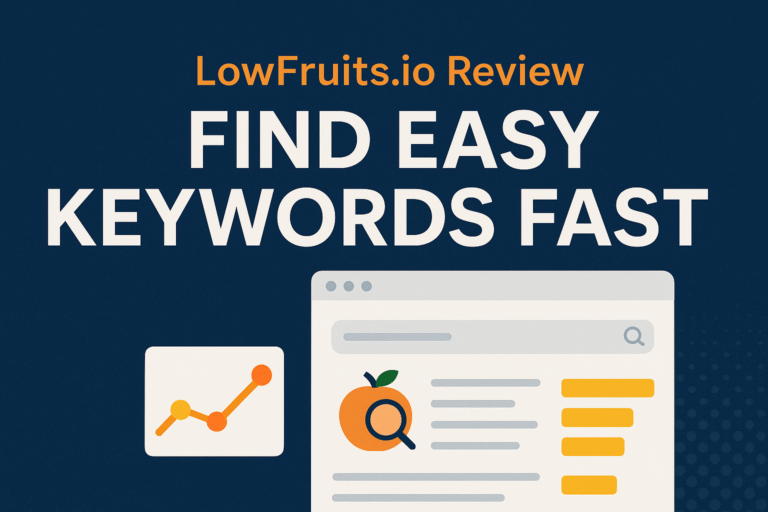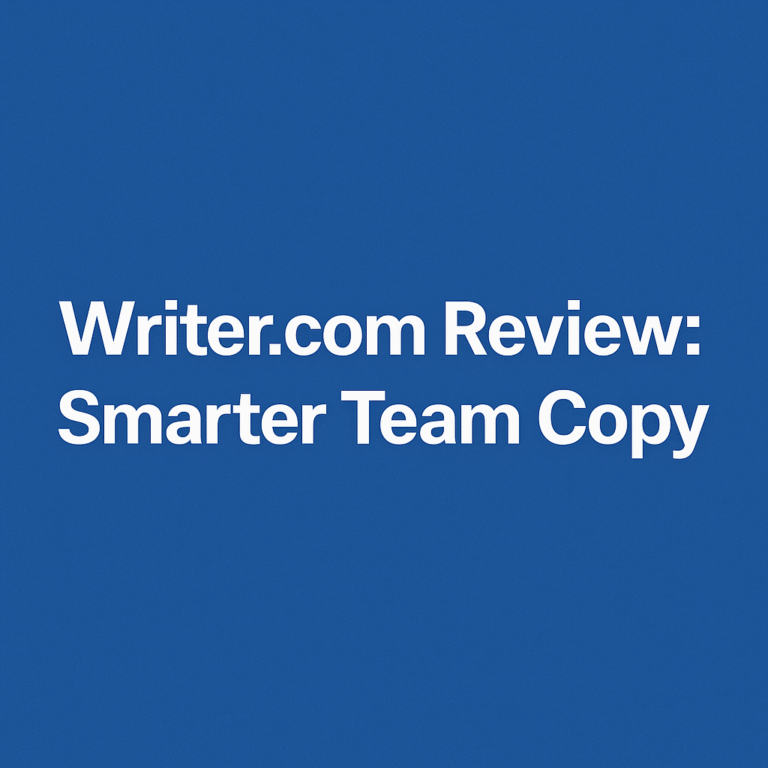
Notion vs Trello: 2025 Project Showdown
Project management tools are the digital cornerstones of modern productivity, and two names often clash in the same arena: Notion and Trello. If you’ve found yourself stuck between these two popular platforms, you’re not alone. The keyword “Notion vs Trello: Best for Project Management?” isn’t just a search term—it’s a question countless teams, solopreneurs, and businesses wrestle with daily.
Let’s face it—getting your projects organized and executed on time isn’t optional anymore. It’s the lifeblood of any efficient operation. But while both tools promise to streamline your workflow, they go about it in very different ways. Notion is like a blank canvas that transforms into anything you need, while Trello is the master of simplicity and visual task flow. So, who wins?
Let’s dive deep.
Notion vs Trello: Best for Project Management?
When you compare Notion vs Trello: Best for Project Management?, you’re not just weighing features—you’re evaluating your entire workflow philosophy. Are you building complex project ecosystems or managing simple to-dos? Notion is powerful but requires setup time; Trello is quick to launch but limited in depth. Ultimately, the best choice aligns with how you and your team think, plan, and execute.
Core Philosophy: Structure vs Simplicity
Notion is a flexible digital workspace. It’s like LEGO® for productivity—you build what you need. Trello, on the other hand, is a clean, Kanban-style task board designed for fast-moving workflows. With Trello, what you see is what you get.
Notion encourages creativity and planning depth. Trello thrives on visual clarity and speed.
Visual Interface: Kanban vs Block-Based Brilliance
Trello uses boards, lists, and cards—each card can be moved around like sticky notes. It’s drag-and-drop simplicity at its finest.
Notion’s interface revolves around nested blocks. Text, images, tables, checklists, embeds—they’re all building blocks. This can be overwhelming for first-time users but feels like heaven for those who want tailored layouts.
| Feature | Notion | Trello |
|---|---|---|
| Kanban | ✅ | ✅ |
| Table View | ✅ | 🚫 |
| Gallery View | ✅ | 🚫 |
| Timeline/Gantt | ✅ (Paid) | ✅ (Power-Up) |
| Calendar | ✅ | ✅ |

Ease of Use: Which One Feels Natural?
Trello wins hands-down in this department. A five-minute tour and you’re rolling.
Notion has a steeper learning curve. There’s a setup process, and the interface might seem abstract at first. But once you’re in, it rewards you tenfold.
Customization Power: Building Your Dream Setup
With Notion, every project page can be uniquely yours. From multi-column layouts to custom databases, it’s as flexible as your imagination.
Trello, though more limited, has customization through labels, checklists, attachments, and Power-Ups (add-ons).
If you’re someone who likes templates that adapt to your evolving workflow, Notion is your go-to. If you’re someone who needs just a board and a few lists, Trello wins.
Team Collaboration Features
Both tools support:
- Tagging teammates
- Adding comments
- Sharing pages/boards
But Notion allows inline comments within docs, collaborative editing, and better long-form content support.
Trello excels in visual updates, card watching, and board activity feeds—ideal for fast-paced teams.
Productivity Tools That Make Work Flow
| Productivity Tool | Notion | Trello |
|---|---|---|
| Reminders | ✅ | ✅ |
| Calendar View | ✅ | ✅ |
| Daily Tasks | ✅ (via templates) | ✅ |
| Pomodoro Add-ons | ✅ (integrations) | ✅ (Power-Up) |
| Habit Tracking | ✅ (templates) | 🚫 |
Notion doubles as a productivity dashboard. Trello sticks to task management.
Templates and Presets
Notion’s library includes:
- Content calendars
- Design systems
- Knowledge bases
- Personal planners
Trello’s templates lean toward:
- Marketing pipelines
- Agile sprints
- Event planning
Notion’s templates feel deeper and more flexible, but Trello’s are ready-to-go.
Flexibility and Modularity
Notion can become your entire second brain: notes, CRM, wiki, goals. Trello? It’s your project board—period.
Notion bends to fit your mind. Trello sticks to a specific method.
Automation and Workflows
Trello shines here. With Butler (its built-in automation tool), you can:
- Auto-assign tasks
- Schedule recurring cards
- Move tasks across boards
Notion lacks native automation but integrates well with tools like Make, Zapier, and Automate.io.
Pricing Models: Where Does the Wallet Hurt Less?
| Plan | Notion | Trello |
|---|---|---|
| Free | ✅ | ✅ |
| Personal Pro | $8/mo | $5/mo |
| Team Plan | $10/mo | $10/mo |
| Enterprise | ✅ | ✅ |
Both tools are generous with their free plans, but Trello’s is more streamlined.
Scalability: Solo Creator or Scaling Startup?
Startups love Notion’s ecosystem—it grows with your team. Solo freelancers also appreciate its all-in-one utility.
Trello fits great for small to mid-sized teams that rely on quick task visibility and Kanban flow.
App Integrations: How Open Are They?
Notion integrates with:
- Slack
- GitHub
- Figma
- Google Drive
Trello supports:
- Dropbox
- Gmail
- Jira
- Evernote
- Salesforce (via Power-Ups)
Trello arguably has more out-of-the-box options. Notion’s integrations feel more modern.
Mobile Experience: On-the-Go Battle
Both apps are slick on iOS and Android. Trello loads faster. Notion looks cleaner. Usability is subjective—Trello might feel lighter, Notion more powerful.
Web and Desktop Performance
Trello wins on load speed. Notion shines in layout flexibility.
If you’re working on older hardware, Trello runs lighter.
Offline Mode: Can You Work Without Wi-Fi?
Trello: Some offline functionality via mobile app.
Notion: Recently improved, but still limited. You’ll want to stay online for a smoother experience.
Task Management Capabilities
Trello leads in visual clarity.
Notion dominates in task depth—you can add subtasks, databases, and tags in one view.
Knowledge Base Creation
This is Notion’s superpower. Build entire wikis with links, embeds, tables, and relations.
Trello? Not built for documentation.
Note-Taking Strength
Notion outshines nearly every productivity tool when it comes to notes.
Trello is not meant for note-taking—though you can create cards as “notes,” it’s not the same.
File Attachments and Media Handling
Both support images, docs, and links. Trello has tighter limits on free plans.
Notion allows media embeds like Loom, Miro, or even PDFs inside a page.
Security and Permissions
Both platforms offer:
- User roles
- Sharing settings
- Workspace permissions
Notion’s permissions can be granular—down to the block. Trello keeps it at card and board level.
Search and Filters: Who’s Faster?
Notion’s search is powerful but slow at times.
Trello’s is faster, but more basic. Advanced filters are part of the paid plan.
Performance and Speed
Trello wins on performance and app load speed. Notion wins on richness and layout control.
Ideal Use Cases
Choose Notion if you need:
- A second brain system
- All-in-one workspace
- Rich formatting
- Internal wikis
Choose Trello if you want:
- Lightning-fast task views
- Kanban-only simplicity
- Clean, focused task boards
- Easy automation
Final Verdict on Notion vs Trello: Best for Project Management?
There is no one-size-fits-all answer. Notion is a flexible beast that handles everything from notes to CRM. Trello is a master of Kanban. Both are fantastic—just for different people.
Need versatility? Go with Notion.
Need simplicity? Stick with Trello.
FAQs
What is the main difference between Notion and Trello?
Notion is an all-in-one workspace that allows you to create databases, wikis, and pages, while Trello is a Kanban-style task manager ideal for visual task tracking.
Can I use both Notion and Trello together?
Absolutely. Some users manage tasks in Trello and link documents or wikis from Notion.
Which is better for teams?
Both are great, but if your team needs documentation and planning tools, Notion wins. For fast-moving task flows, Trello is the go-to.
Does Notion or Trello offer better automation?
Trello offers better native automation through Butler. Notion relies more on external tools.
Is Notion hard to learn?
It can be at first. But once you understand the blocks and templates, it becomes second nature.
Which app is better for freelancers?
Freelancers who manage diverse types of work may prefer Notion. Those focused strictly on projects might lean toward Trello.
Conclusion
Notion vs Trello: Best for Project Management? This question doesn’t have a one-word answer—but it has a powerful insight. If your productivity thrives on flexibility, structure, and depth, Notion could be your secret weapon. If your flow demands fast visibility and simple execution, Trello’s Kanban boards are still king. In the end, the best tool is the one that helps you deliver.
Related Topics
Semrush vs Ahrefs: Which SEO Tool Is Worth It?|Toolgenix
Hootsuite vs Buffer: Which Social Media Scheduler Works Best?|Toolgenix
Grammarly vs ProWritingAid: Which Grammar Tool is Smarter?|Toolgenix
Systeme.io vs ClickFunnels: Best Funnel Builder for Beginners|Toolgenix
Canva vs VistaCreate: Which Design Tool Should You Choose?|Toolgenix
Surfer SEO vs NeuronWriter: Best SEO Tool for Bloggers|Toolgenix
ConvertKit vs Mailchimp: Which Is Better for Email Marketing?|Toolgenix
Jasper vs Writesonic: Which AI Writer Wins in 2025?|Toolgenix



